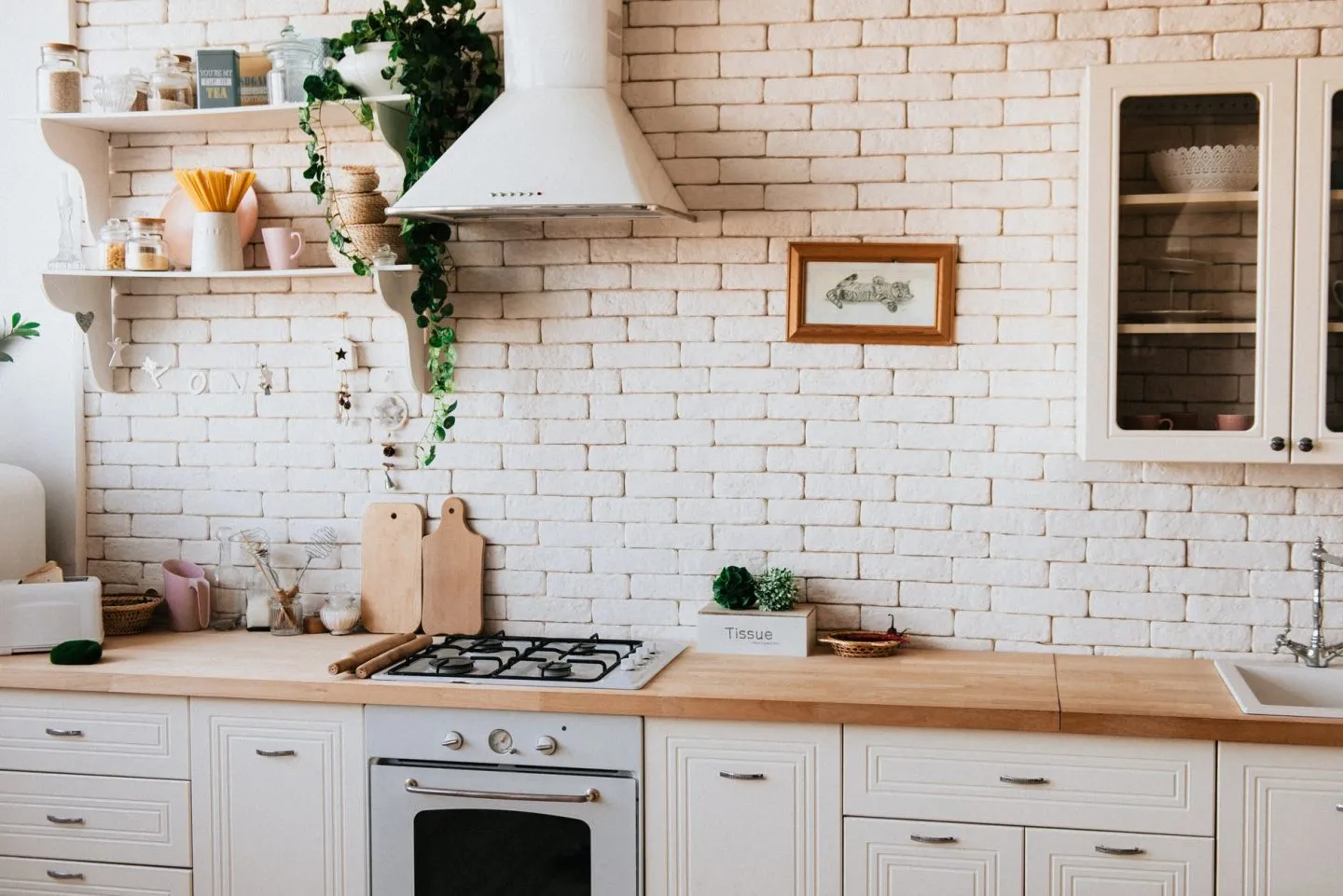
If you’ve been wondering how you can clean your oven without using toxic chemicals, you’re in the right place! Today I’m going to show you how to make homemade oven cleaner using just three ingredients: Baking soda, white vinegar, and water. You probably already have these items in your cupboard, but if not they won’t break the bank. I bought my baking soda for 85p and the white vinegar for £1.
One of the reasons I don’t want to use harsh chemicals in my home is because I have a toddler, and I don’t want to have to ban him from the kitchen while I am cleaning. I am also pregnant so I am particularly sensitive to strong chemical smells at the moment, which is why I wanted to use a completely safe non toxic oven cleaner recipe.
It’s easy to forget about cleaning your oven when you’re organising your kitchen, especially as it’s closed 99% of the time, so you don’t usually see what it looks like inside until you bend down to have a look.
The base of your oven can quickly build up a layer of baked on grease that will start to smell, so of course it’s best to do regular oven cleans if possible, but if it’s been a while don’t worry- This recipe will still work!
I have already been switching my regular cleaning products for eco friendly cleaning products, but this DIY oven cleaner recipe goes a step further, since you won’t need any extra plastic packaging for it, and you probably have the ingredients already. It is unbelievably easy to make, and it will have your oven clean in no time at all.
Homemade Oven Cleaner – Ingredients
This recipe only needs three ingredients, and they are all completely non toxic.
- Baking Soda (Sodium Bicarbonate)
- White Vinegar
- Water
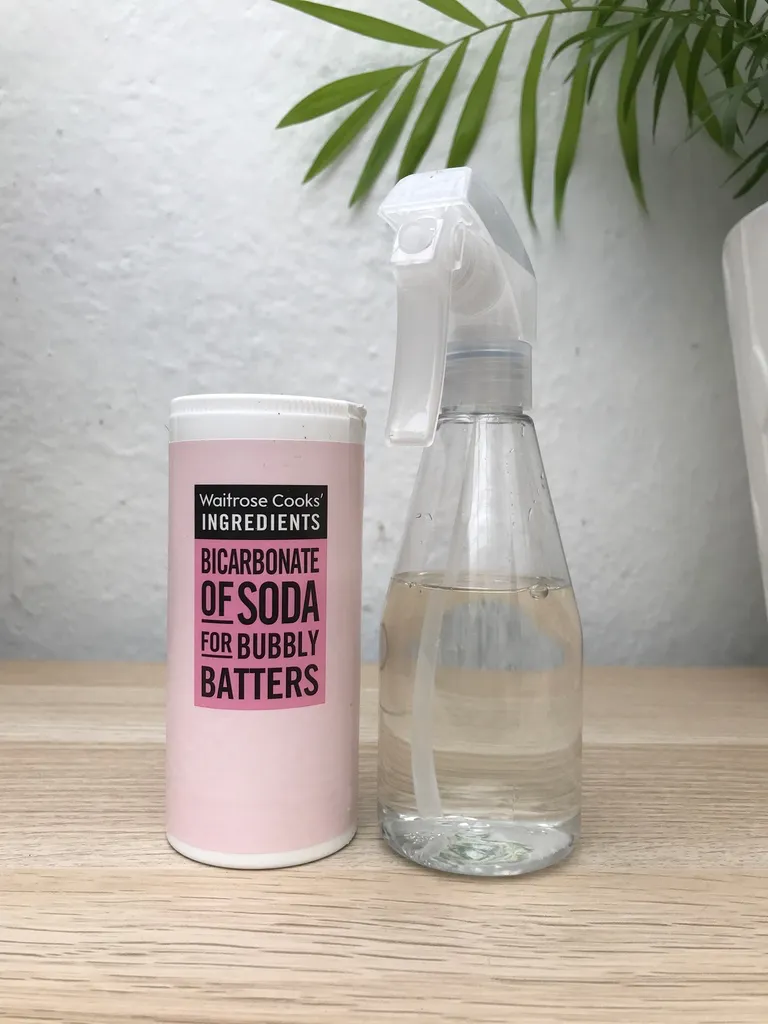
Tools:
- Spatula or scraper to remove any loose debris
- Brush to apply the homemade oven cleaner
- Bowl for mixing
- Spray Bottle for the White Vinegar
- Sponge
- Cloth for wiping clean at the end
Why baking soda and vinegar?
Baking soda soaks up grease, and is mildly abrasive, so it will help you scrub off the grime without damaging your oven. The vinegar is acidic, so it’s great at cutting through any baked on grease or dirt with ease
How to Clean Your Oven Using Baking Soda and Vinegar
Step 1.
Make sure your oven is turned off and cooled. Remove the racks from your oven and place them somewhere safe, such as in the kitchen sink, or on newspapers so they don’t make anything else dirty. Scape off any loose bits of debris and burnt food out of your oven using a plastic spatula.
Step 2.
Mix your baking soda with some water in a bowl. Start with about three tablespoons of baking soda and add in the water a little at a time until it makes a thick but spreadable paste. You will probably need half the amount of water to baking soda.
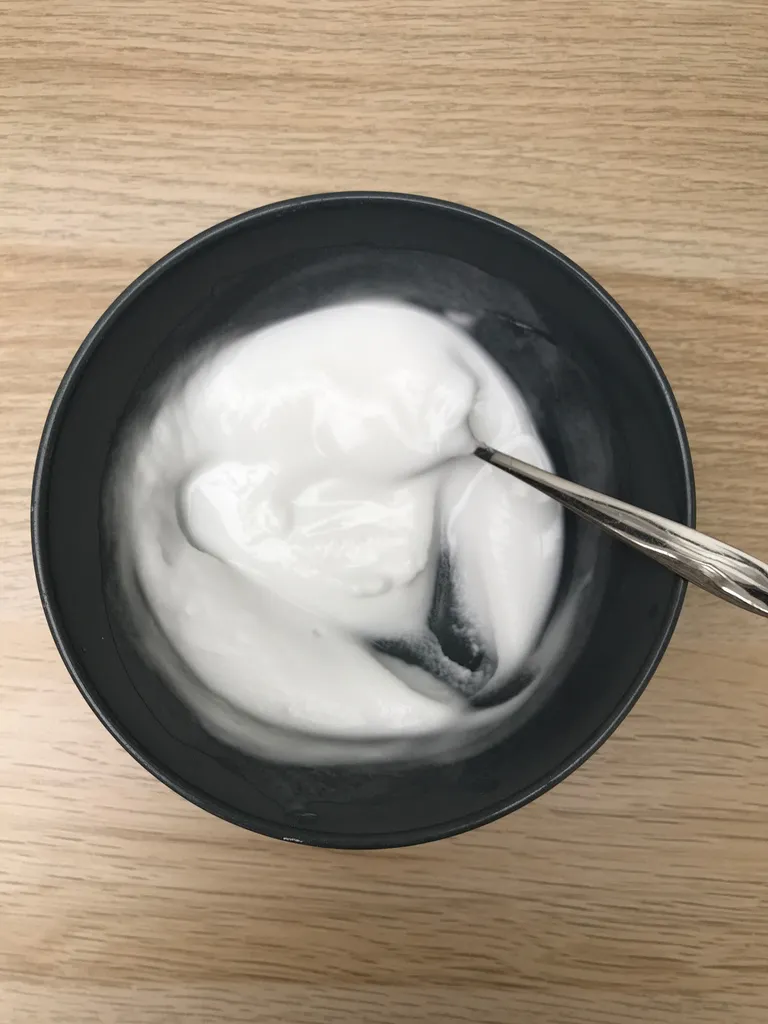
Step 3.
Apply the paste to the base and walls of your oven, making sure it doesn’t get on any of the heating elements. You can either use your hands to apply the paste (make sure you wear gloves though) or use a brush (I used an old paintbrush). Leave the paste on for a few hours, or overnight if you can, so it can cut through the grease.
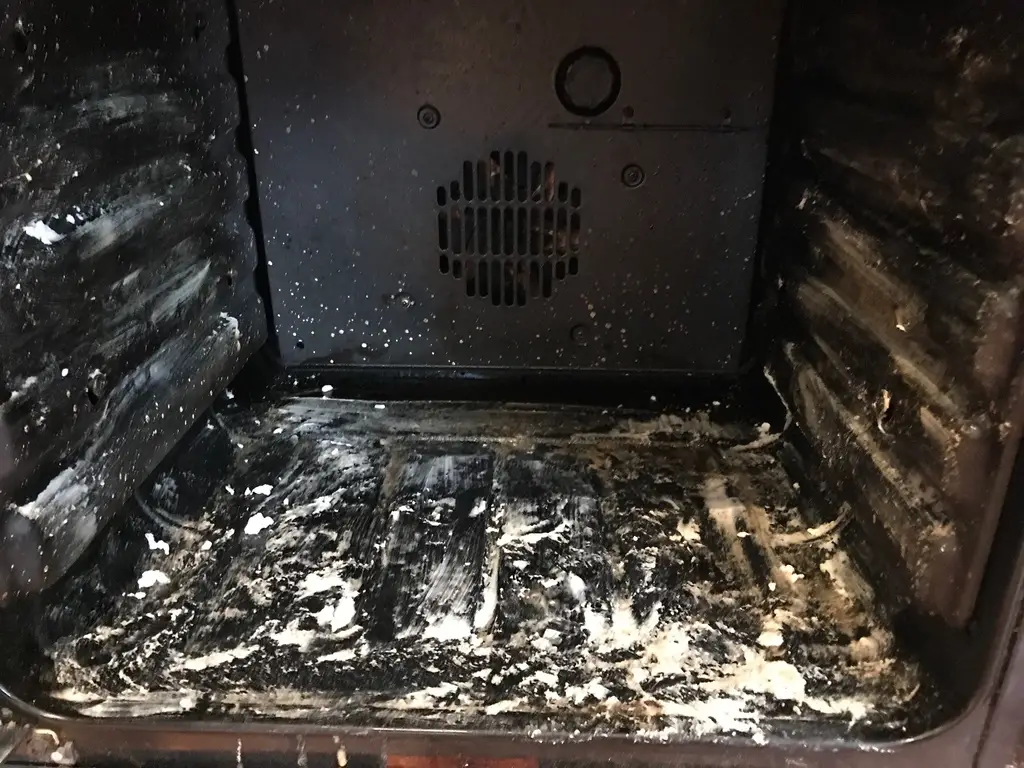
Step 4.
Use an old sponge and warm water to wipe away the baking soda and grease. Keep an old towel nearby as this bit is pretty gross. I recommend you wear gloves if you can to keep your hands from getting too greasy!
Step 5.
After you have wiped the oven out as much as you can with the sponge, use a spray bottle to spray your white vinegar on any stubborn bits of grease, and wipe out the oven again.
Step 6.
Finally, give the oven one last wipe down with clean warm water to remove any vinegar residue.
How To Clean Oven Racks
You have two options here. You can either use the same process you used for the main oven: Spread the homemade oven cleaner on the racks and leave overnight, then wipe off in the morning with a sponge and some white vinegar.
The other alternative is that if you have a dishwasher, most oven racks will fit comfortably inside the dishwasher, so you can save yourself some effort, and put them all in together on a hot cycle. Don’t put anything else in the dishwasher with the oven racks, as they might end up covered in black bits. Also, remember to rinse out the filter afterwards too!
Homemade Oven Cleaner: The Result
You should now have beautifully clean oven! If there is any particularly stubborn burnt on grease that won’t come off, repeat the process the next day on the patches of dirt that are left, and that should do the trick. Remember, cleaning more often in the future will make it easier every time, so keep it up!
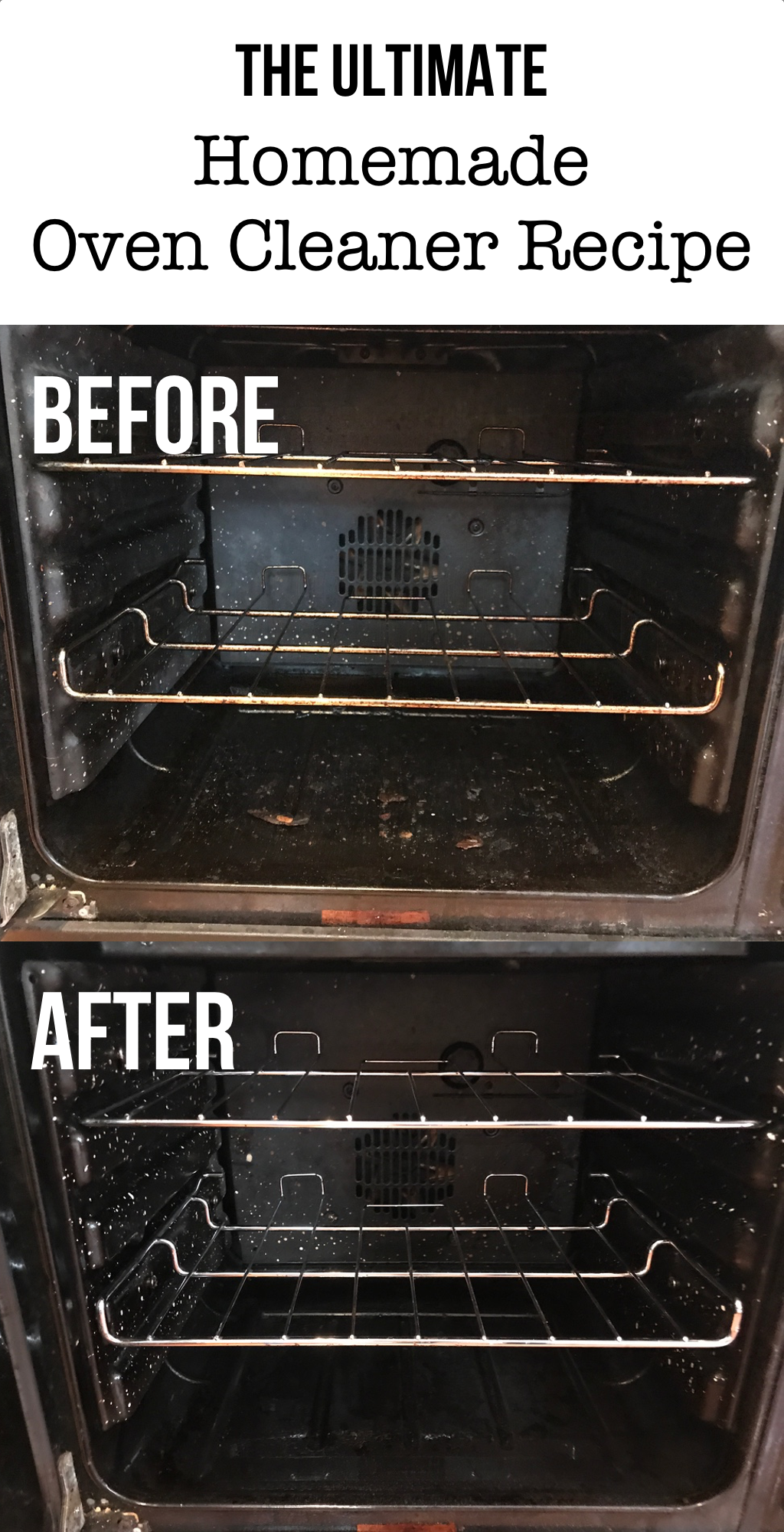
Frequently Asked Questions About Oven Cleaning
Can I use baking powder instead of baking soda to clean my oven?
No. Baking powder contains different ingredients, and if you mix baking powder with water it will turn into foam instead of paste. How do I know? I used it by accident before I realised there was a difference. Oops!
How often should I clean my oven?
You should give your oven a deep clean at least every 6 months. That being said, If you use your oven a lot, and cook a lot of greasy meals that splatter out of the baking tray then it will no doubt need cleaning more often than this. Good maintenance is probably your best option, so make sure it gets a good wipe down every week to stop dirt getting burnt on.
Is a dirty oven dangerous?
Yes, you should never let your oven get too dirty. A large build up of grease can cause your oven to smoke, and it could even catch fire. Not to mention the disgusting smell. It can also ruin the taste of your food.
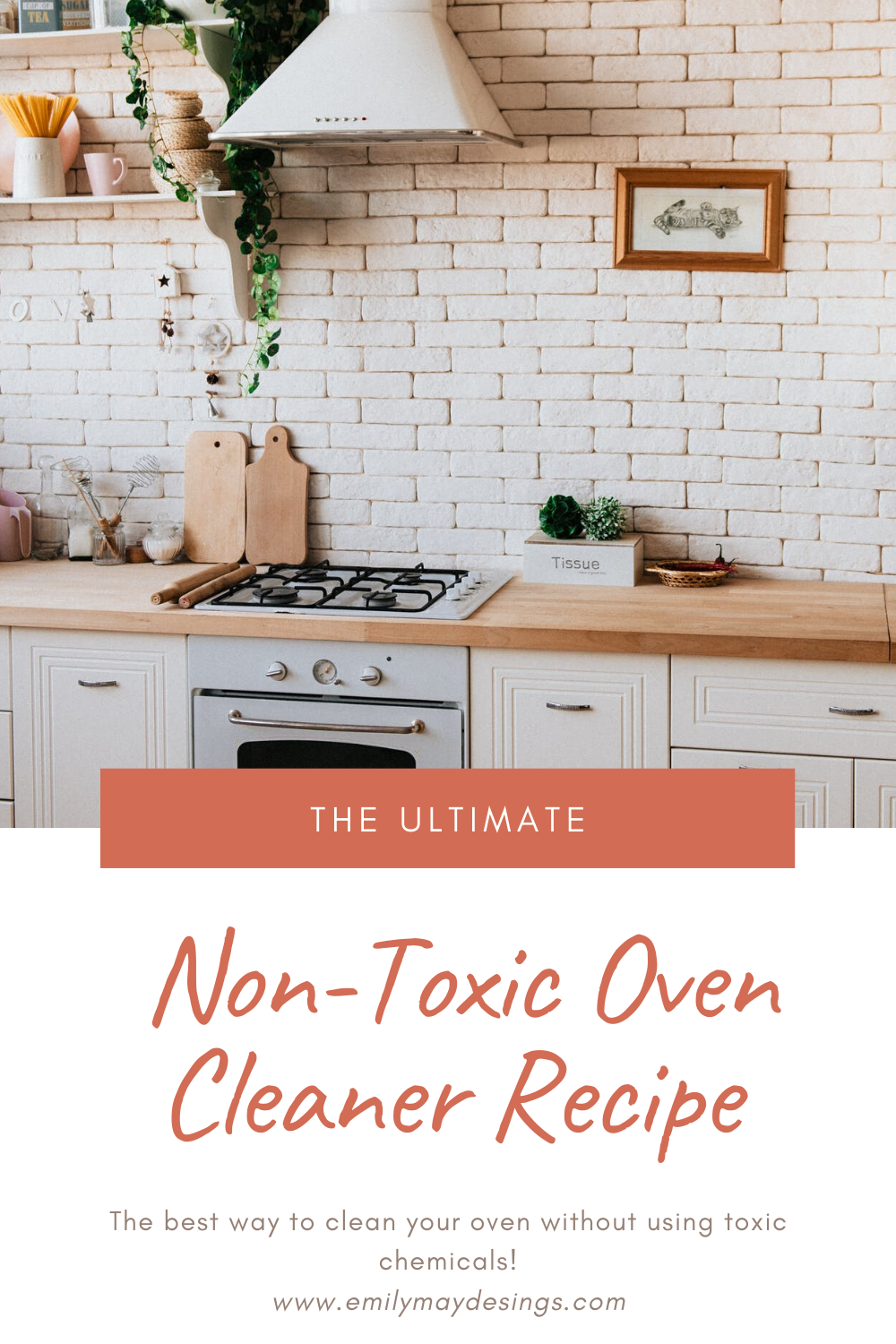






Such a simple recipe! I’m going to try this soon. My oven definitely needs a cleaning.
This is so cool I had no idea you could make your own! And non-toxic, which is so much better for when the pets are around xo
Makeup Muddle
Great idea, thanks for sharing your recipe! I wonder if it would also work with lemon juice instead of vinegar (still acidic, but a slightly more pleasant smell)?